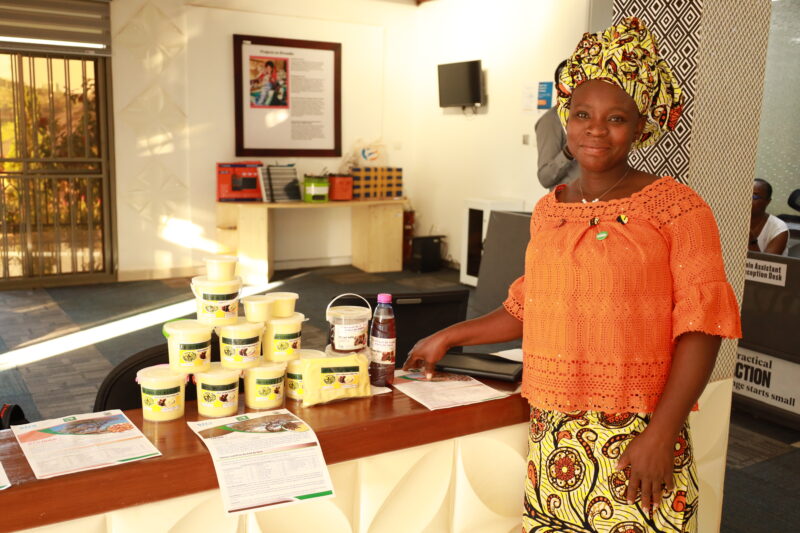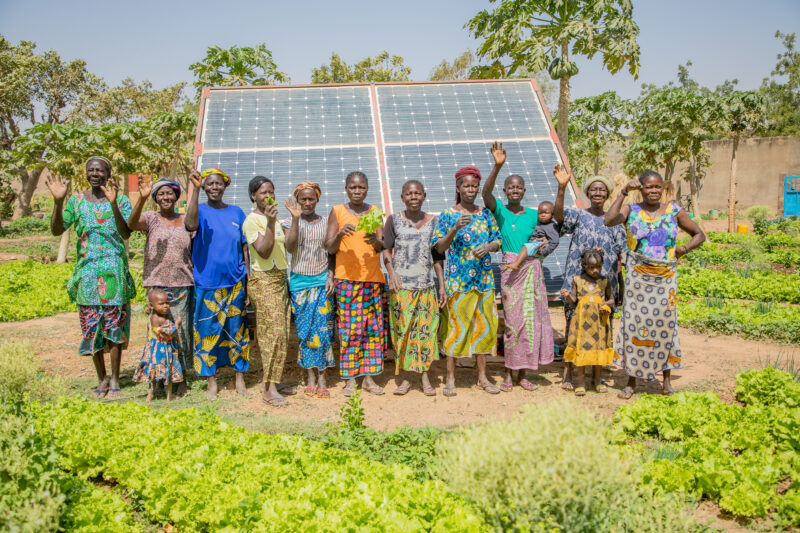Energy Empowering Women in Burkina Faso
This article is part of the 16 Days Against Gender-Based Violence campaign, 2023
This article is part of the 16 Days Against Gender-Based Violence campaign, 2023
Awa Convollo, a brave and active woman, is the president of a simplified cooperative society (SCOOP) that manufactures shea butter, and her fellow women in the cooperative face difficulties that limit their activities and prevent them from increasing their income and productivity.
“We’ve always worked manually, and that’s a real brake on the speed of our production, not to mention the labor involved for a woman. Not having had the chance to be trained in business management, it is hard for us to keep track of our incomes”. Says Awa
Burkina Faso is one of the countries in the world where the inequality gap between women and men is the widest. The main obstacle to gender equality is said to be the “socio-cultural weight” of tradition, which prevents rural women from contributing to development. According to Burkina Faso’s national poverty profile, 44.5% of Burkina Faso’s population live below the absolute poverty line, the majority of whom are women. Women are vulnerable in many areas of Burkina Faso, including education, access to land, access to financing, access to employment and access to quality health services. This situation is even more difficult for women in rural areas, where the overload of domestic chores reduces the amount of time they must devote to production and income-generating activities (IGAs). Limited access to renewable energy resources and modern production technologies reduces the ability of women farmers to increase their incomes.
To support and empower them, the cooperative, represented by Awa, benefited from a knowledge-sharing trip to Rwanda, to the Mahama refugee camp in the east of the country. The trip was made possible by the support of Practical Action and the Swedish Embassy in Burkina Faso as part of the Renewable Energy for Agricultural Livelihoods (REAL) programme. This knowledge sharing trip demonstrated how other women are facing up to similar challenges, and how Practical Action in Rwanda is helping women to be self-sufficient through renewable energy.

Awa’s cooperative (pictured above) is taking advantage of the opportunities presented by the REAL program, which focuses on enhancing the well-being of smallholders, particularly women and young people, involved in agricultural and forestry value chains. The programme aims to achieve this by increasing their incomes through the adoption of renewable energy practices. To empower as many women as possible, we are collaborating with women’s groups to offer training in various technologies for the productive use of energy (PUE). These technologies include solar pumping, improved stoves, solar hullers, and more. By equipping them with knowledge and skills related to these technologies, we aim to help women understand how they can boost their income, reduce their workload, and explore alternative solutions that can minimize wood expenses and eliminate fuel costs.
“It’s a great relief to know that access to renewable energy will not only make our lives easier, but also increase our productivity. Thanks to this trip, I’ve been able to meet women who work in processing like me, and I’ve learnt a lot from them. One of the things that has impressed me the most is having learnt that there are ways of managing your income and investing it. It was a real eye-opener, and I’m happy to be able to share it with women back in my country” Awa added.
Our approach is to work on the energy-agriculture nexus market. To this end, we are working to establish solid commercial links between suppliers of PUE technologies, financial institutions and the players in the value chain, including women. By creating links between these three players, financial institutions will be able to adapt their financial products, PUE technology suppliers will know the real needs of women farmers and women farmers will be able to share their energy and financing needs. This work on the market will enable women to be truly autonomous in many respects.
To provide women with the best possible opportunities, our work focuses on the following value chains: market gardening, non-timber forest products, rice, fish farming and poultry. In these respective agricultural and forestry value chains, we enable them to apply existing PUE technologies to empower them and give them greater capacity overall.
Men are also involved in activities to help women organize themselves better and understand PUE technologies. In addition, women’s groups are often co-directed or supported by men, so by working with them they’ll be able to make a sustainable transfer of knowledge and power to women.
REAL in Burkina Faso aims to reach 10,000 women by 2025. Since January 2023, 2,000 women have already been trained in the productive use of energy. During these training sessions, demonstrations were given on the use of improved stoves, solar lamps and biodigesters.
